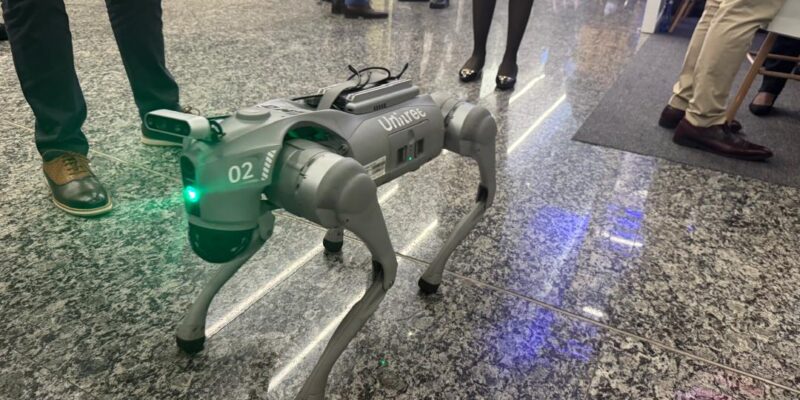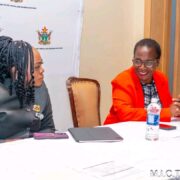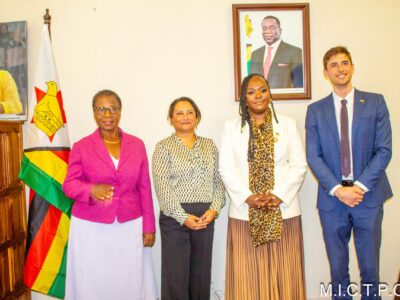Artificial Intelligence (AI) is rapidly transforming industries and societies, offering groundbreaking solutions to some of the world’s most pressing challenges. However, one significant challenge remains, women are underrepresented in AI development, particularly in fields like robotics and assistive technologies.
At the inaugural Global AI Summit on Africa, held in Rwanda, Melinda Mudzurandende, a student at Carnegie Mellon University in Rwanda, is pioneering the development of assistive devices for individuals with disabilities, showcasing the potential of AI to create inclusive solutions.
As a woman in a male-dominated field, Melinda is breaking barriers. Professor Paul Mavima, the Minister of Skills Audit and Development, remarked that her work is a reminder that women’s perspectives are vital in shaping technologies that truly serve society’s diverse needs.
By Ruvarashe Gora
“Her creativity and determination are unmatched,” said Mavima. “Melinda is not just defying the odds, she’s leading the way in making robotics more accessible to those who need it most.”
While AI holds immense potential for innovation and economic growth, its development risks perpetuating gender and social biases of women and other marginalized groups remain excluded. Rwanda’s President Paul Kagame, speaking at the summit, emphasized the need for Africa to harness its creativity and innovation to avoid lagging behind in the global AI revolution.
“Africa cannot afford to be left behind, once again playing catch-up,” Kagame said. “We have to adapt, cooperate, and compete. It is in our best interests to do so.”
AI’s transformative potential is undeniable, but as AI expert Isheaneau Sithole pointed out at the Women in Science conference, the industry’s gender imbalance remains a pressing concern.
“Women make up 48% of Zimbabwe’s population, yet their representation in AI and technology is minimal,” Sithole said. “Globally, women in AI-related roles account for just 22%, and in executive positions, the numbers drop to between 14% and 20%.”
Sithole warns that the lack of female representation in AI is not just an issue of equity but one of fairness in innovation. “If AI is trained on biased data, the solutions it generates will carry those same biases, leaving out entire groups from critical innovations,” he stated. “Women’s perspectives are essential in designing technologies that are both fair and effective.”
The summit also featured contributions from influential leaders such as Strive Masiyiwa, Founder of the Econet Group, who spoke about Africa’s growing digital infrastructure and the need for AI language models that reflect the continent’s diverse cultures.
“We need to ensure that AI serves our people,” Masiyiwa said, highlighting initiatives like the development of AI models for languages such as Kinyarwanda and Swahili.
Zimbabwe was well represented at the summit by Professor Paul Mavima, Minister of Skills Audit and Development, reinforcing the country’s commitment to developing the workforce needed for a future driven by AI and technology. His presence underscores the importance of preparing Africa’s workforce for the jobs of tomorrow, particularly in areas like AI development, data science, and robotics.
Sithole, during his presentation, also urged for early AI education for girls, mentorship programs, and inclusive hiring practices to increase women’s participation in this transformative field. “AI is advancing rapidly, and we cannot afford to leave women behind,” he said. “Women must take an active role in shaping the technologies that will define our future.”
Melinda Mudzurandende’s work exemplifies the kind of inclusive innovation that is needed to address global challenges. With more women like her leading the way, Africa can harness the power of AI to drive positive change. Whether in assistive technology, healthcare, or economic development, women’s voices are crucial in ensuring that AI technologies are developed in ways that benefit everyone, not just a select few.
The call for women’s inclusion in AI is clear. If we are to unlock the full potential of AI, we must ensure that diverse voices are heard and that women, like Melinda, are at the forefront of shaping the future.














Comments